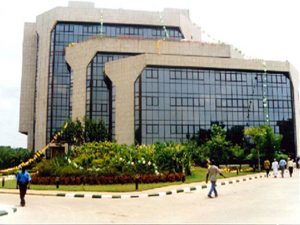
Speaking at a press conference on Monday, Secretary-General of the Nigerian Red Cross Society, Abubakar Kkende, said more than 26 million Nigerians are facing acute hunger and malnutrition due to the rising cost of food.
The target of the NCRS is to reach 2.5 million people in 16 states, according to Khene Anani-Nnabugwu, a senior communications officer at the NCRS.
Mr Kende noted that the partnership with Ecobank seeks to raise money locally, support hunger crisis, and provide relief to those affected by the crisis.
He added that the society launched an emergency appeal to support about 200,000 people.
“However, the gravity of the hunger crisis persists, and new individuals are in desperate need of assistance. The international federation in collaboration with the NRCS has scaled up the hunger crisis appeal to reach 2.5 million people,” he said.
Mr Kende said the increased internal conflicts, farmers-herders conflict, banditry, and global conflicts like the Russia-Ukraine war have compounded to increase the cost of food in the country.
“Natural disasters such as rising incidents or frequency of floods as part of the consequence of climate change, affect food production, availability, and affordability,” he added.
He, therefore, called on Nigerians to donate to the cause, which he said is to help struggling Nigerians.
The Nigerian Red Cross Secretary General said Nigerians have turned up well in the past when the society sought funds to help Nigerians.
According to him, Nigerians donated more than 80 per cent of the funds the society used in helping victims of the 2002 Ikeja bomb blast in Lagos and over 50 per cent to the victims of floods in 2012.
“In Nigeria, a dire hunger crisis is currently affecting the lives of many people. It is a situation that demands immediate attention and collective effort to alleviate the suffering of those affected,” he said.
Mr Kende said the appeal is anchored by the International Federation of Red Cross and Red Crescent Societies (IFRC) Africa Zero Hunger Initiative.
Speaking earlier, the IFRC’s Country Cluster Delegation for Benin, Ghana, Nigeria, and Togo, Bhupinder Tomar, said while the root causes of this hunger cannot be removed immediately, it is important that the sufferings of vulnerable people are alleviated in the meantime.
He said: “The projection from many actors, including ourselves, is that more than 26 million people will have acute malnutrition. That’s not a small number…I don’t think any single actor can respond to this and can provide all the solutions.
“I’m so pleased that Ecobank has stood up and is thinking about contributing to this effort in some small way.
“But what we’re asking is that many Nigerians who have the ability will have the means even in this harsh environment, that they become generous, that they open up their heart and partner with Nigeria Red Cross to collect resources and allow Nigeria Red Cross to respond to this crisis, and support Nigerians who are suffering tremendously from lack of nutrition and all associated diseases that come with it.”
Speaking, the North Central regional head of the Ecobank, Rita Ademola, also appealed to individuals and corporate bodies to donate to the cause.
She said: “We are currently faced with acute hunger due to the alarming levels of food insecurity in the country.
“At this juncture, let me appeal to well-meaning individuals, corporates, and international organisations to donate generously towards this project to save humanity. We’re particularly delighted to partner with the Nigerian Red Cross Society in this bold initiative,” she said.
Wayback
In 2023, close to 25 million Nigerians faced the risk of hunger. That number has risen to 26.5 million, according to the Food and Agriculture Organisation (FAO).
The prices of food items in Nigeria have more than doubled in the past one year. According to the National Bureau of Statistics (NBS), the food inflation rate in January rose to 35.41 per cent on a year-on-year basis, which was 11.10 per cent points higher compared to the 24.32 per cent recorded in January last year.







